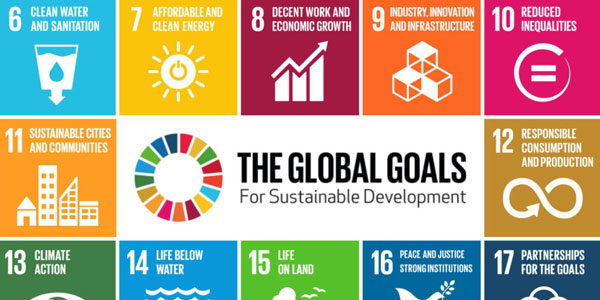Can philanthropy grow Africa?
- Bhekinkosi Moyo
Despite the fact the philanthropy is pervasive – benefactors and beneficiaries abound – relatively little is known about its practice in an African context.
Philanthropy takes various forms, with the two main ones: philanthropy at the local level practised by the community or its high net worth individuals (HNWIs); and institutional philanthropy in the form of foundations.
The former is practised by members of a community mostly in a horizontal manner. They give to each other ‘in kind’ – they donate goods, time and networks, and they rally in times of difficulty. They also give cash. We have seen this happening during the 网易体育 pandemic, where communities forged in solidarity had a positive impact on psychosocial wellbeing, among others.
This kind of localised philanthropy helps to ensure that communities survive from one hardship to the next, but it is limited to individual geographies and does not always address the root cause of a problem.
Community vs institutional giving
Community giving is more often seen as charity; gestures between people in times of need. Although this can be viewed as palliative giving and not curative in nature, charity or community giving has a huge role to play in Africa’s development. A charitable gesture such as helping a girl child from a village attend school has the potential for a significant impact down the line – by enabling the girl to navigate her own way in the world, to lift her out of a patriarchal system, and to empower her economically. That girl has the potential to become a leader herself who may in turn impact on the lives of other girls in her community.
The number of HNWIs in Africa has increased over the past decade. These individuals are able to give both to and beyond their communities, and many of them have their own foundations through which they donate. The deeper pockets and systems that they have established mean that there is transformative potential to address the root causes of problems and have a lasting impact.
Large-scale philanthropic aid, such as HNWIs and international donor foundations, are seen as transformative and developmental in nature. This type of philanthropy can address power relations, social justice and policy issues – and is arguably still lacking in Africa. There are more and more funds coming into Africa but poverty and inequality are not decreasing and violence is in fact increasing.
Seeking solutions to systemic issues
Asserting the real impact of philanthropy requires more attention and reflection, especially by philanthropies themselves. We need to scrutinise how philanthropy is being implemented and explore what areas need support and for how long. Frequently, philanthropy is based on project funding, because most funders prefer this. While projects have their place, we need to talk about how to achieve sustainable, long-term funding to resolve systemic problems.
In deciding on the areas that need philanthropic attention, I believe that the United Nations’ Sustainable Development Goals (SDGs) provide an important framework. In fact, philanthropy has long supported many challenges embodied in the SDGs, particularly issues of poverty and hunger, education, inequality and governance – all of which are contained in the 17 SDGs. But the actual priority will depend on each country’s specific needs.
In South Africa, there are several specific areas that I believe we need to identify as urgent, including women empowerment, inequality, gender-based violence and unemployment. Globally, we need to rally collectively around issues of climate change and the environment, because those are likely to be our most pressing challenges in the future.
African growth prospects
Education has an important role to play in ensuring that philanthropic efforts contribute to Africa’s growth. We cannot have philanthropy without education – the biggest philanthropic organisations in the world, such as Carnegie, the Ford Foundation and Kellogg in the US, and closer to home, the likes of the Dangote and Motsepe Foundations, all have their roots in industry and the private sector.
Knowledge and education lead to a strong private sector, which is the source of financial resources for philanthropy.
Secondly, we need to develop leaders who will run their corporations from a philanthropic perspective. These are individuals who emerge from higher education institutions driven by the values of social justice and transformation. As educators, we need to develop in them an understanding of social justice and ethics and how these can and should be embedded in the work that they do.
Whether it is private giving or large-scale project funding, philanthropy has a crucial role to play in the growth of the continent. To be truly effective, philanthropy must look deeper into root causes to ensure lasting social justice in Africa.
- Professor Bhekinkosi Moyo is the Director of the Centre on African Philanthropy and Social Investment (CAPSI) at the Wits Business School.
- This article first appeared in?Curiosity, a research magazine produced by?Wits Communications?and the?Research Office.
- Read more in the 12th issue, themed: #Solutions. We explore #WitsForGood solutions to the structural, political and socioeconomic challenges that persist in South Africa, and we are encouraged by astounding ‘moonshot moments’ where Witsies are advancing science, health, engineering, technology and innovation.

